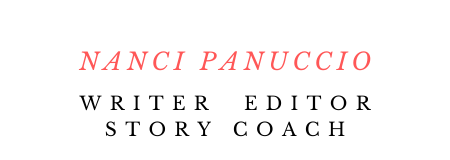Outlining is one of those requirements we either love or hate.
But the best outlines aren’t rigid, or even painstaking. The most effective outlines are breathable. They’re a guide to help you track your story, your cast of characters, and what happens.
An outline can and should change the deeper you delve into your material.
In this episode, you’ll start building your 6- Step Story Outline.
Download as an MP3 by right-clicking here and choosing “save as.”
Episode at a glance:
[01:01] Three foundational elements to have in place before you outline.
[02:28] Why outlines are not set in stone, and why these six steps will lead to a working outline that leaves plenty of room for invention and surprise.
[03:14] The purpose of an outline. It’s not just to keep your story on track, it’s a tool for clarifying the story you’re trying to tell. Learn how to avoid just piling on plot points, characters and events. This is not the goal of your outline.
[06:51] 1: Your Working Title. This will likely change several times the more you revisit your story, but it helps to get at the core thrust of your story. And just for kicks, I’ll share all the working titles before The Great Gatsby became The Great Gatsby.
[10:02] 2. Signature Statement. This a defining statement that captures the essence of your story. It’s not a summary, but it carries the arc of your story. It’s the driving line of the novel or story from which every other creative decision springs.
[09:09] 3. Major Characters. These are the characters who are crucial to the development of your plot.
[09:51] 4. List Your Major Locales. Your story will have major locations that serve all the action. So some of the action may happen on a battlefield. Some might happen in the palace, some might happen overseas, some of the action might take place in a flat. For example, in The Great Gatsby, there are five locations where the action takes place.
[10:57] 5. List Your Chapters with a one-sentence description of that chapter’s main event. Learn the rule of chapters and how to create anticipation that carries the reader’s interest into the next chapter.
[14:16] 6.Your Concept Of Your Ending. This answers the story question introduced in your opening.
Link mentioned in this episode:
Episode 118: Before You Outline: 3 Foundational Elements To Build First
Rate, Review, and Follow on Apple Podcasts.
“I love Writer Unleashed!” If that sounds like you, please consider rating and reviewing my show. This helps me support more writers — just like you —to bring the story burning in their imagination onto the page. Click here, scroll to the bottom, tap to rate with five stars, and select “Write a Review.” Then be sure to let me know what you loved most about the episode!
Also, if you haven’t done so already, follow the podcast. It’s chock full of writing tips and inspiration every Tuesday. Follow now!

